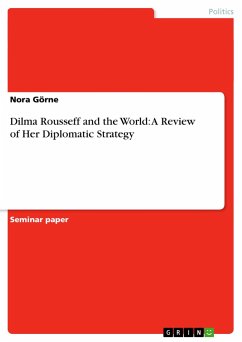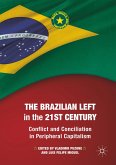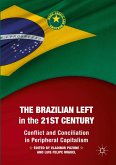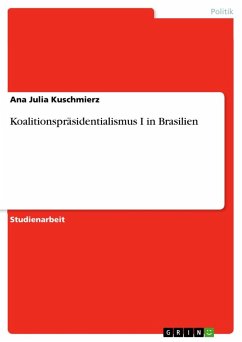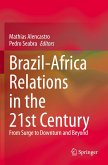Seminar paper from the year 2012 in the subject Politics - International Politics - Region: Middle- and South America, grade: 7.5, University of Amsterdam (CEDLA), course: Brazil: Democracy, Citizenship and Sustainable Development, language: English, abstract: Since almost 19 months, Brazil has a new president: Dilma Rousseff, the first woman to take office and the first time that the president is not a candidate from the opposition to the former government. Her success is mainly attributed to the fact that Dilma, Lula da Silva'sformer cabinet chef, was advertised as "candidate of the Lulism" (de Carvalho Cruz Pires, 2011, p. 1) who could not run a third consecutive time himself due to legislation ("Lula da Silva", 2011). Reports supposed first that Dilma would merely be an "interim president" till Lula could run again for elections in 2014 (Souza, 2011, p. 87). But soon, Dilma reached popularity rates of 77% which is even higher than the rates of Lula in his second year ofpresidency (Comenalli, 2012) who once has been called "the most popular politician on earth" by Barack Obama ("Obama: Lula is", 2009). Even though several reports point out that while essentially sticking to the main points of her predecessor (Sader 2011, Löwy 2012) Dilma managed to step out of Lula's shadow (Bryson 2011). However, a thorough analysis of her first 19 months is still missing. By examining her stand to various global issues and herdiplomatic strategy, the following will discuss Dilma's role in foreign affairs, especially her standpoint in comparison to her predecessor Lula. The retrospective on Lula is especially important when considering the statement of Richard Bourne who points out that in the presidential constitutional republic of Brazil, its citizens align themselves much more with a candidate than with a party (2008, p.213). Before going into achievements and plans in foreign policy, a short historical overview of Dilma's political career and her visions, both nationally and internationally, will be given. Neither the comparison nor the review of Dilma's foreign policy agenda is meant to be all-encompassing but should rather be seen as an exploration of Dilma's first 19 months as President with the aim to answer the question what other nations can expect from Dilma for the rest of her term.

